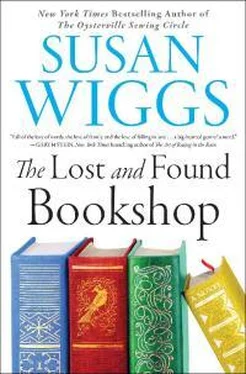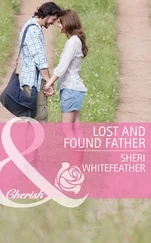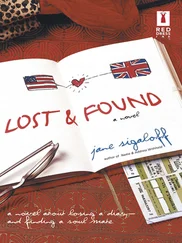He shook his head. “At what point does one’s phenotype change one’s ethnicity? It’s never mattered to me.”
She gave his shoulder a squeeze. “I love that you said that.” Then she sighed. “What a world. I feel bad for old Colleen. I guess she wasn’t old, though, just a young immigrant trying to make her way in a strange country. It’s sad, picturing her raising her little boy alone, being denied her husband’s pension. I hope they were happy for a time.”
“I like to think they were,” Andrew said.
“But your father . . . Did he look like a white man? A black man? Did you ever wonder . . . ?”
Andrew had only a few photographs of his parents. His mother was a blond Norwegian beauty, square-jawed with a determined light in her eyes. She was the one who had managed both the business and family, and she was a strict disciplinarian. His father, the son of this soldier the Larrabees had shown him, had been swarthy and tall, with upright military posture despite his lame leg, but had he looked like a man of color? Not to Andrew. To Andrew, he’d simply been a beloved father.
“I didn’t wonder,” he said. He handed her an envelope sealed with a length of waxed twine. “My father had so few keepsakes. We have his parents’ marriage certificate. And the first actual photograph he had of himself is this one—with his draft registration card from 1917.” He gave her the picture of his father, Julius, handsome and sober in the uniform of the U.S. Army Ambulance Service. “You can see what he selected in the Race category on the draft registration.”
She studied the card. “The options are White, Negro, and Oriental. And he selected White. Maybe he didn’t know. Maybe he opted to declare himself Caucasian to avoid dealing with prejudice. I wish we knew more about him.”
“As you know, he was orphaned at the age of seven in the great earthquake and fire, so there are no photographs of him as a child, only the sketches of him made by his mother.”
Natalie’s eyes flew wide. “There are sketches? She made sketches?”
“We found them in the basement when the water heater was being replaced. It seems my grandmother was quite a fine artist. She kept illustrated journals as well, but I don’t know what became of them. Blythe put them away to organize someday.” Then doubts crept in. “Perhaps it was my mother who had the journals.” The fright darted at him. Why couldn’t he remember? What couldn’t he remember? He felt it again, the yawning gap of memory, now filled with searing grief.
“I’ll see if I can find them,” Natalie said quietly.
She placed the card in the envelope with the marriage certificate. There were old newspapers and clippings as well. “Did you go through these other papers?”
“Blythe and I planned to do that together.”
Natalie’s eyes were as wet as the morning dew. “I have an idea. How about you and I read everything together?”
He smiled past the grief. What a blessing it was to have his granddaughter. “I’d like that, Natty-girl.”
15
Natalie settled into the rhythm of the days, finding comfort in the routines of the shop. She came to love the hush in the morning before opening, turning on the espresso machine, and reveling in the heady aroma of the bakery delivery. When business was slow, she distracted herself from worry by looking after Grandy and keeping the shelves and tables tidy.
Peach was dealing with something in the basement. There was always something.
She still felt the little arrows of grief that darted into her at unexpected times, when she came across poignant reminders of her mother. A note of affirmation under the desk blotter: Find a way or make a way. A picture of herself in a drawer with Mom’s writing on the back. Gold stars for Natalie on Field Day. She studied her tiny self, awkward and grinning, holding up a ribbon that had probably been awarded for participation. She’d never been much of an athlete.
The shop door opened and a guy with two kids came in. Natalie offered a nod of greeting. The kids scurried over to the children’s section, and the guy went to browse the selection of cookbooks.
“Can I pick two, Dad?” the girl asked.
The little boy, her brother, was quickly decisive. “I’m getting this one. Turn This Book Into a Beehive ! It’s cool, see? A book you can turn into a beehive.”
“Duh,” said the sister.
“Hey,” said the father.
“That’s a good choice,” Natalie said. “I used to live up in Sonoma County, and the people who kept mason bees in their gardens always had the best crops. Everything grows better with lots of bees to pollinate.”
“I’m scared of bees,” said the girl.
“Then you’ll like mason bees. They don’t sting.”
She went over to the girl, who appeared to be agonizing over her choices. “I read this one last night,” said Natalie, taking out a copy of Lalani of the Distant Sea . “It’s about a girl who goes on a quest to save her mother.” Natalie had read the story with her heart in her throat, wishing there had been a way for her to save her mom. “It’s scary in places, but I think you’ll like the ending.”
“Hey, yeah!” Her face lit up. “Dad! I’m getting this one.” She hugged the book to her chest.
Natalie had nearly forgotten how much she loved moments like this. A child, eager to dive into a book and get lost in the story. Their father selected a Mary Kay Andrews cookbook and set it down on the counter with the others. “Goals,” he said, indicating the mouthwatering spread on the cover. He added another book to the stack— Sex and the Single Dad . “Also goals,” he murmured. His gaze lingered on Natalie’s mouth. He didn’t look away as he produced his wallet.
He was cute, she allowed as she ran the charge and put the purchases in a bag. And single. Then she felt guilty for noticing he was cute. He was the second guy she’d noticed today and it wasn’t even noon yet.
“Well,” she said with a bright smile. “Good luck with that.”
He smiled back, signing his charge slip. “Nice store,” he said. “Just moved to the area. We’ll come again soon.”
“Great,” she said. “We’re open seven days a week.”
His name was Dexter, she noted, putting the slip away. Dexter Shirley Smiley.
Peach emerged from the basement and sauntered over to the counter, a wicked-looking Sawzall in hand. “Just need to check on something,” he said. “Okay if I go upstairs and take a look at the floor under the tub?”
“Sure,” she said, then turned back to Dexter and his kids. “Thanks for coming in.”
Peach headed upstairs with the big saw, tools clanking on his belt. For some reason, she had the impression he was watching over her. It was just a sense she had, maybe a false sense, but it helped her feel less alone. Working side by side day after day created a subtle, hard-to-define bond between them. She frequently reminded herself that he was not her friend. He was friendly. There was a difference. And the repair bills were adding up. She’d started writing book reviews for the Examiner , bringing in a small but steady stream of extra money.
At lunchtime, she went to check on Grandy. He looked cozy in his big reading chair, his feet close to the radiator and a pencil in hand as he read over the printed pages of the local history he and her mother had collected.
When she stepped into the apartment, he looked up, then took off his spectacles and wiped them on the tail of his shirt. “May I help you?” he asked.
Shoot. He’d seemed more lucid earlier today, but now his gaze was unfocused.
“I was about to ask you the same thing. What would you like for lunch? I was going to send out for Thai.”
Читать дальше












